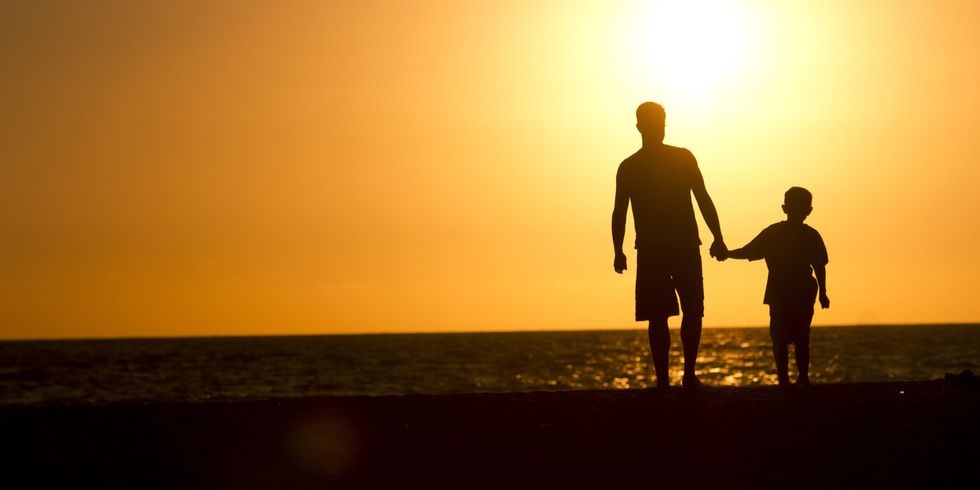B-b-b-b-ahh-ba. This was my first very elongated word, and for those of you who do not know, “Baba” is dad in Bengali. My mom was pregnant for almost nine months, had a C-section, nurtured me her entire life, and yet my first word was “baba”. Many could argue that the “b’” sound was much easier to enunciate than the “mm” sound, but in many ways, I have always been a daddy’s girl.
As an only child, my parents meant the world to me. We were immigrants to the United States, and even through the struggles of this identity, I had a very normal and happy childhood. Nonetheless, this took the collaborative effort from both of my parents. There is such a social stigma with the mother as the homemaker and therefore children have more of an attachment with their parents. This may have been true in the past, but this social dynamic is beginning to change.
According to a Pew Research Center analysis, single-father-headed households have increased eight times more now as compared to the 1960s, but for women, the statistic is only four times more. This may signify a shift in the importance for a father to take custody of a child. Although the statistical analysis suggests that fathers in these instances are less educated, the rise still demonstrates that there is some sort of social acceptance on single fatherhood.
Apart from single fatherhood, there are many indications of the importance of good fathers in a boy’s upbringing. There is a negative connotation with the patriarchy and it is growing uglier every day as both our nation and other countries feel its effects. According to a documentary called “The Mask, You Live In”, a strong association is drawn between the way boys psychologically develop and the part fatherhood plays in their lives. It explores how fathers teach boys not to have vulnerabilities from a young age and have dominating roles in other people’s lives. Due to this among many other reasons, we see the ghastly mask that many men wear and how they treat each other and women. Fatherhood is a huge responsibility among those who believe in this fight for feminism. In my opinion, I believe that fathers can achieve a solace in this fight by diffusing the tension in this binary gender system.
Just as a father has a role in their son’s life, he is just as important in a daughter’s life. A Nobel Peace Prize winner, Malala Yousafzai, has countlessly referred to her father being the catalyst to her achievements. Malala’s father even endured threatening messages from the Taliban to continue supporting her daughter’s efforts. In an article by BBC, there was mention of how there were no regrets of encouraging Malala to bring a change. Although her face became paralyzed, she became stronger than ever. She grew more motivated and devoted to her philanthropic work with education. Humanity was finally brought out during points of darkness, and Malala’s beacon of light was her father.
Speaking from my experience, I was truly privileged to have a father adapt to and live a life that promoted positive change for women. He has always taught me to respect my abilities and myself. During my school days, I dealt with so many confidence, self-respect, and image issues. Even during those times, my father would make me feel worthy by having productive discussions about politics, science or life. Even communicating about these topics helped me understand that my dad cared enough about me to have these discussions. He was even open-minded about my attitudes on feminism. Although he had a different cultural upbringing, he always had this amazing power to listen. Often times, I feel like this is something that moms often times lack. While they often know what is right, fathers, on the other hand, help you rationalize. My dad always chose reason, and he was consistently willing to help me talk through my situations. These are the parts that played a key role in my upbringing, and there is definitely a strong father figure behind every distinguished man or woman.

















